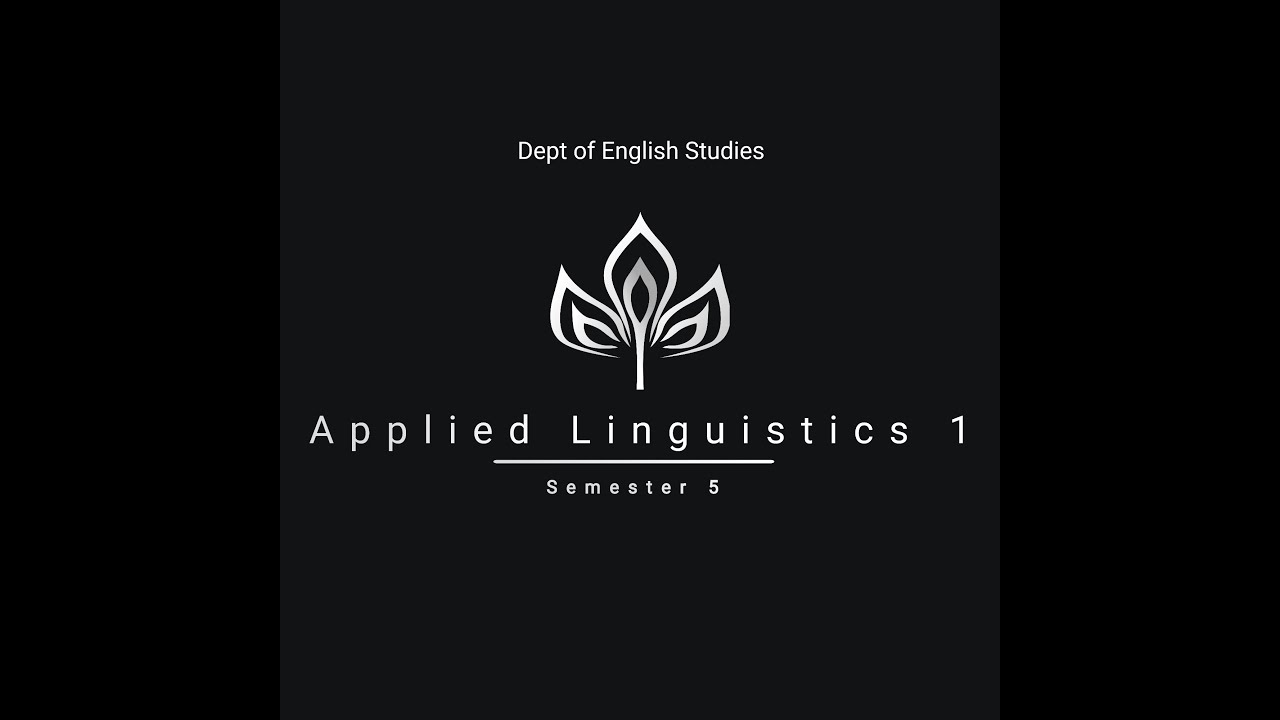Ramon Shindler: The Magic of Language Learning – A Meeting with the Wizard of Words
Summary
TLDRIn this engaging presentation, Ramon, a seasoned language learner and teacher, shares valuable insights on language acquisition. Drawing from his personal experiences of living in various countries, he emphasizes the importance of creativity, imagination, and sensory engagement in learning. Ramon uses humor and interactive exercises to demonstrate how language learning is a gradual process filled with mistakes and growth. He also highlights practical memory techniques and encourages students to embrace mistakes as part of the journey. Ultimately, he inspires learners to approach language learning with curiosity, playfulness, and confidence.
Takeaways
- 😀 Ramon has lived in multiple countries, giving him a broad perspective on language learning and teaching.
- 😀 Language learning is a continuous process; it's not about perfection, but progress every day.
- 😀 Using imagination is a key tool in language learning—it helps to make the experience more engaging and memorable.
- 😀 Creativity can be applied to language learning, as each learner can create unique sentences that have never been said before.
- 😀 A good memory is essential for language learning, but it's up to the learner to find ways that work for them.
- 😀 Senses play a significant role in language learning—sight, hearing, and even taste, smell, and touch enhance comprehension.
- 😀 Language learning involves some magic, as it can be an exciting and transformative experience.
- 😀 Mistakes should be embraced as part of the learning process—don’t fear them, learn from them.
- 😀 Learning language through personal interests, such as sports or movies, can make the experience more enjoyable and effective.
- 😀 Language learners should focus on using language chunks or set phrases to build confidence before forming complex sentences.
- 😀 Using humor and personal stories (like those from Ramon’s life in Ukraine or his early experiences in Poland) makes language learning more relatable and fun.
Q & A
What is the speaker's background in language learning?
-The speaker was born in London and grew up there but has lived in many different countries, including France, Germany, Sweden, Spain, Argentina, the Soviet Union, Ukraine, and Poland. He was once a teacher of French and German but decided to pursue learning languages himself.
What teaching methods does the speaker use to engage language learners?
-The speaker encourages the use of imagination, creativity, memory, and the five senses in language learning. He also highlights the importance of making language learning memorable and suggests using a variety of techniques, such as watching movies or sports, to practice.
What is the significance of using imagination in language learning, according to the speaker?
-Imagination is emphasized as a powerful tool to engage with language. The speaker suggests that by imagining scenarios or experiences, learners can enhance their comprehension and retention of language, making the learning process more enjoyable and effective.
Why does the speaker encourage students to make mistakes when learning a language?
-The speaker encourages making mistakes because they are a natural part of the learning process. He compares language learners to ice skaters, who fall but get up and continue. Mistakes are part of the journey, and overcoming them leads to growth and confidence.
What does the speaker use as an example of a memorable language learning experience?
-The speaker shares a story of learning Polish by watching a movie, 'Manhattan,' with a voice-over. By repeating and memorizing dialogues from the film, he gained confidence in using the language in everyday situations.
How does the speaker approach learning Polish, and what challenges does he face?
-The speaker has been learning Polish for a long time and faces challenges like navigating its complex grammar. He shares a humorous story about his American friend misunderstanding a Polish cooking instruction, highlighting the difficulties of learning a new language.
What is the role of creativity in language learning?
-Creativity is vital in language learning because it allows learners to create unique sentences and express themselves in ways that are entirely new. This creative process fosters a deeper connection with the language and makes learning more engaging.
What is the speaker's view on using sensory experiences for language learning?
-The speaker suggests that language learning is enhanced when it involves not only sight and hearing but also the senses of taste, smell, and touch. By using all the senses, language becomes more vivid and engaging.
What is the speaker's perspective on the concept of 'random' in language learning?
-The speaker humorously recounts a childhood misunderstanding of the word 'random,' thinking it was the name of a place. This story highlights how misinterpretations can occur when learning new words in a foreign language.
How does the speaker use humor to illustrate language learning challenges?
-The speaker uses humorous anecdotes, such as his friend's confusion with Polish soup instructions and his own misstep with Ukrainian pronouns, to show that mistakes and misunderstandings are inevitable but valuable in the language learning process.
Outlines

此内容仅限付费用户访问。 请升级后访问。
立即升级Mindmap

此内容仅限付费用户访问。 请升级后访问。
立即升级Keywords

此内容仅限付费用户访问。 请升级后访问。
立即升级Highlights

此内容仅限付费用户访问。 请升级后访问。
立即升级Transcripts

此内容仅限付费用户访问。 请升级后访问。
立即升级5.0 / 5 (0 votes)






